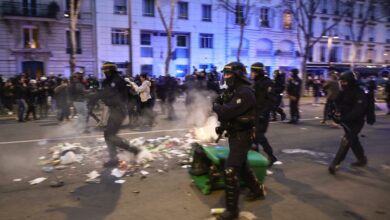Colombia’s Petro begins presidency with stress on LatAm unity

Bogota, Aug 8 (EFE).- On his first full day as president of Colombia, Gustavo Petro met here Monday with Chilean counterpart Gabriel Boric and with senior representatives from throughout the hemisphere, reflecting the commitment to Latin American unity he outlined in his inaugural address.
Besides Boric, a fellow leftist who became Chile’s youngest head of state in March, Petro held talks with delegations from Mexico, Cuba and the United States.
The newly inaugurated president said Sunday that for Latin America, it is “time to leave behind blocs, groups and ideological differences to work together.”
To that end, Petro and Boric agreed on the need to relaunch the Andean Community and bolster the Community of Latin American and Caribbean States (CELAC).
“We have spoken especially of revitalizing the Andean Community … which in the past played a very important role in the planning of the processes of industrialization in our countries,” the Colombian said during a joint press conference with Chile’s president.
The Community was founded in 1969 by Bolivia, Colombia, Ecuador, Peru, Chile and Venezuela, but lost relevance over the years with the departures of Chile (1976) and Venezuela (2011).
CELAC, comprising 33 member-nations, was established in 2010.
The two leaders spoke in favor of “concrete processes of integration,” such as unifying the region’s electrical grid and devising mechanisms for the sharing of natural resources.
Alliances should be forged not in terms of temporary “ideological affinities, but rather in function of the cooperation among our peoples,” Boric said.
Two other Latin American presidents, Mexico’s Andres Manuel Lopez Obrador and Bolivia’s Luis Arce, are also on the left, and the likely return to power of Luiz Inacio Lula da Silva in Brazil augurs the consolidation of a leftist bloc in the region.
Colombia and Mexico can be the “fundamental poles” of Latin American unity, Petro said after meeting Monday with Mexican Foreign Secretary Marcelo Ebrard and first lady Beatriz Gutierrez.
The new president also made time for a discussion with Samantha Power, head of the US Agency for International Development (USAID), who represented Washington at Petro’s inauguration.
Under a succession of rightist administrations, Colombia has been the main US ally in Latin America for the last two decades.
Cuba’s foreign minister, Bruno Rodriguez, conveyed to Petro the “unwavering commitment” of Havana to “contribute to peace in Colombia.”
The Communist-ruled island hosted the negotiations that led in 2016 to peace between the Colombian government and the country’s largest insurgency, the FARC, and later provided a venue for talks between Bogota and the smaller ELN rebel group.
Petro’s predecessor, Ivan Duque, abandoned dialogue with the ELN four years ago after the group’s attack on Colombia’s police academy left a score of cadets dead.
The new president, who signaled before taking office that he planned to resume contacts with the ELN, said Monday that he expects to learn in the coming weeks whether those talks will take place in Cuba.
Hosting the ELN came with a cost, as the US – egged on by Duque – reinstated Cuba on its list of state sponsors of terrorism because Havana refused to hand over rebel negotiators to Colombia following the academy bombing. EFE ocm/dr





